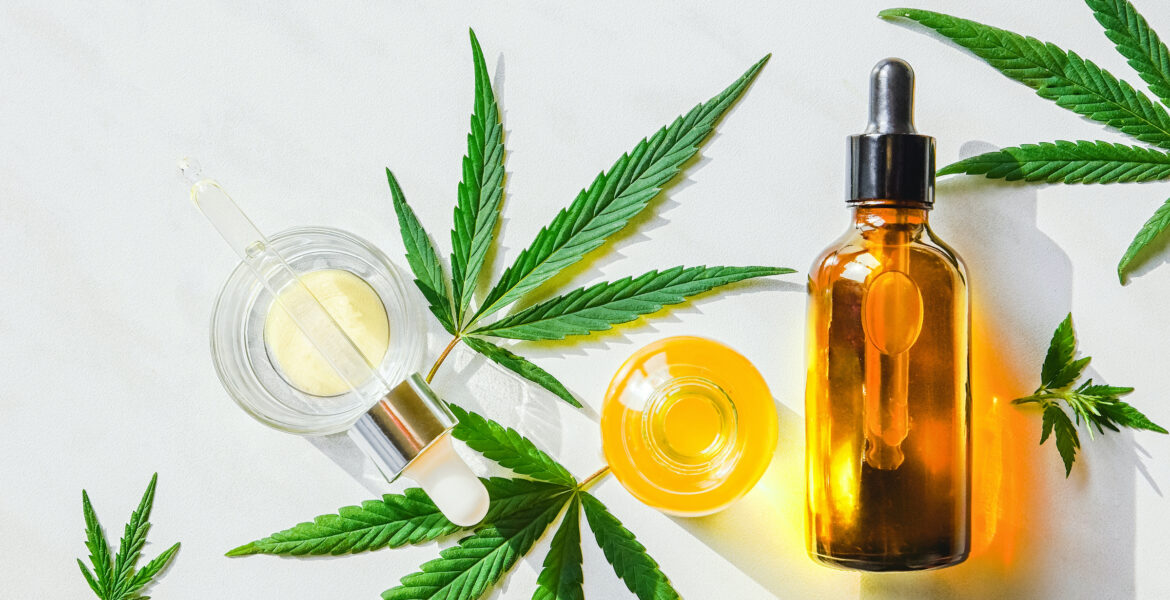
CBD Oil and Acne
On June 26, 2024 by itzadmin-05Introduction
Acne is a common skin condition that affects millions of people worldwide. It can range from mild to severe and can have a significant impact on one’s self-esteem and quality of life. Over the years, various treatments and remedies have been explored to manage acne, and one of the emerging options is CBD oil. Cannabidiol (CBD) is a compound derived from the cannabis plant, known for its potential therapeutic properties. In this comprehensive guide, we will delve into the relationship between CBD oil and acne, exploring its mechanisms of action, potential benefits, usage considerations, and available research.
Understanding Acne: Causes and Types
Acne develops when hair follicles become clogged with oil and dead skin cells. This provides an ideal environment for the growth of bacteria, leading to inflammation and the formation of various types of acne lesions, including whiteheads, blackheads, papules, pustules, nodules, and cysts. Hormonal changes, genetics, excessive oil production, and bacteria on the skin are some of the factors that contribute to the development of acne.
The Potential of CBD Oil for Acne Management
CBD oil has gained attention in recent years for its potential to alleviate various health issues, including acne. CBD is a non-psychoactive compound that interacts with the endocannabinoid system, which plays a role in regulating various physiological processes, including inflammation, immune response, and sebum production. These interactions have led to the exploration of CBD oil as a possible remedy for acne.
Mechanisms of Action
CBD’s potential mechanisms of action for acne management include
- Anti-Inflammatory Properties: Inflammation is a key factor in the development of acne lesions. CBD has been shown to possess anti-inflammatory properties by interacting with receptors in the endocannabinoid system. This interaction may help reduce the redness, swelling, and discomfort associated with acne.
- Sebum Regulation: Excessive sebum (oil) production by the sebaceous glands is linked to the development of acne. Studies suggest that CBD can influence sebum production by modulating the activity of sebocytes, the cells responsible for producing sebum. This regulatory effect might help prevent clogged pores and the formation of acne lesions.
- Antibacterial Effects: Bacteria, particularly Propionibacterium acnes, play a role in the development of acne. CBD exhibits antibacterial properties that could potentially target these bacteria, reducing their impact on acne formation.
Available Research
While the potential of CBD for acne management is promising, it’s important to note that research is still in its early stages. Limited clinical trials specifically focusing on CBD oil and acne have been conducted. However, some studies suggest its efficacy:
A 2014 study published in the Journal of Clinical Investigation found that CBD prevented the excessive production of sebum by sebocytes. This suggests that CBD’s sebum-regulating properties could be beneficial in managing acne.
A 2016 study in the Cannabis and Cannabinoid Research journal noted that CBD’s anti-inflammatory properties could have therapeutic potential for various skin conditions, including acne.
A 2019 study published in the Experimental Dermatology journal indicated that CBD could exert anti-inflammatory and sebostatic effects on human skin, further supporting its potential for acne management.
An exploratory study published in the Journal of Clinical Investigation Insight in 2021 suggested that CBD might offer a novel therapeutic approach for acne, thanks to its anti-inflammatory and sebum-reducing actions.
Using CBD Oil for Acne
- If you’re considering using CBD oil to manage acne, here are some important considerations
- Consultation: Before incorporating CBD oil into your skincare routine, consult a dermatologist or healthcare professional. They can provide personalized advice based on your skin type, the severity of your acne, and any potential interactions with other medications.
- Quality and Source: Choose high-quality CBD oil from reputable manufacturers. Look for products that undergo third-party testing for purity and potency. CBD sourced from organically grown hemp is generally preferred.
- Application: CBD oil can be applied topically or ingested orally. When using it topically, apply a small amount to the affected areas after cleansing and drying your skin. If ingesting orally, follow the product’s dosing instructions.
- Patch Test: Before applying CBD oil to your face, perform a patch test on a small area of skin to check for any adverse reactions. Discontinue use if you experience irritation, redness, or other negative effects.
- Consistency: Consistency is key when using CBD oil for acne. It may take time to notice improvements, so be patient and give the product time to work.
- Other Skincare Practices: CBD oil should complement a comprehensive skincare routine. Continue practicing good skincare habits, such as cleansing, moisturizing, and using sunscreen.
Conclusion
CBD oil’s potential for managing acne is an exciting area of research. Its anti-inflammatory, sebum-regulating, and antibacterial properties make it a compound of interest for individuals seeking alternative or complementary treatments for acne. While the available research is promising, more clinical studies are needed to fully understand CBD’s effectiveness and optimal usage for acne management. As with any skincare product, it’s important to consult a healthcare professional before incorporating CBD oil into your routine. With careful consideration and informed usage, CBD oil could potentially become a valuable addition to the arsenal of acne management strategies.
- Can Fillers Fix Neck Wrinkles? - April 21, 2025
- Aesthetic Cosmetic Injectable Treatments Near Cobham, Surrey - April 18, 2025
- Benefits Of CBD Infused Gummy Edibles For Managing Chronic Conditions - April 18, 2025

